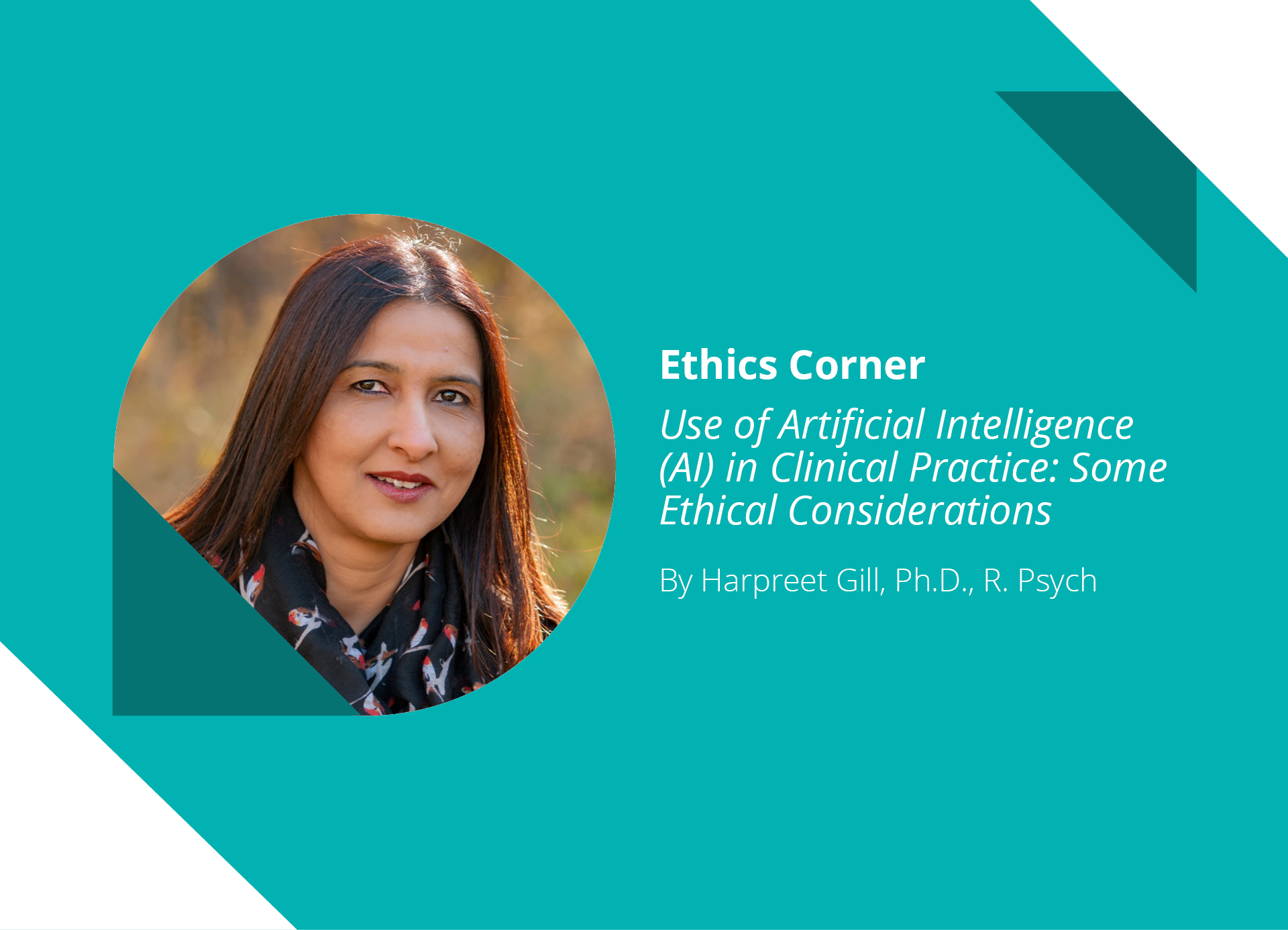
3 minute read
Ethics Corner Use of Artificial Intelligence (AI) in Clinical Practice: Some Ethical Considerations
By Harpreet Gill, Ph.D., R. Psych
Dr. Harpreet Gill is PAA’s Director of Professional Affairs, a program that assists members in learning about ethics and thinking through ethical dilemmas in their work as psychologists.
Recently there have been queries from PAA members about AI generated chart notes, how they can be filed and whether the patients need to be informed prior to using AI for preparing their chart notes, etc. This motivated me to have a discussion with my peers and after a little research, I thought of writing this article.
First and foremost, the use of AI raises the challenge of consent. If a clinician fails to notify a patient that they are using AI for charting their notes, they will be in violation of Principle I of the Canadian Code of Ethics, Respect for the Dignity of Persons and Peoples, by not respecting the rights to autonomy and self-determination. Part of informed consent is to lay down the risks, benefits and limitations of the processes used in therapy which could be complex as AI is unregulated at this point.
Some clinicians are using Generative AI to suggest possible diagnoses and whether people meet criteria. The technology can be helpful, but over reliance without clinical insight could lead to misdiagnosis (e.g. it might suggest anxiety/depression diagnosis if there are words in the file during screening process) and lead to inappropriate treatment plans, thus violating Principle II of the Canadian Code of Ethics, Responsible Caring.
Moreover, for diagnosis and report writing, putting sensitive personal information into these databases poses privacy and legal risks. There are also concerns about economic and cultural barriers to accessing Generative AI tools. The source pool of Generative AI often lacks representation of diverse linguistic and cultural perspectives, which can lead to biases in its outputs.
The integration of AI in mental health care is transforming the field in many ways. Some AI systems handle scheduling, documentation, billing, and other administrative tasks, freeing up time for clinicians to focus on patient care. Suggesting care plans and lifestyle modifications can lead to more personalized and effective treatments. The ethical risks and challenges will likely change as it adapts to patient needs, professional standards, guidelines and with stricter regulations.
It is important that psychologists apply their critical thinking and clinical reasoning skills to navigate these new technologies effectively. Rather than keeping a rigid resistance to technological advances a balanced approach is necessary.
Below are some resources that I came across after discussion with peers and research.
» Getting Started with Zoom AI Companion (https://support.zoom.com/hc/en/article?id=zm_ kb&sysparm_article=KB0057623#BAA)
» Preliminary Guidance for Zoom AI Companion (https://its.uri.edu/2024/08/01/preliminary-guidancefor-zoom-ai-companion/)
» Position statement on the Role of Augmented Intelligence in Clinical Practice and Research (http://apapsy.ch/APA-AI-position-statement)
» EU AI Act: first regulation on artificial intelligence (https://www.europarl.europa.eu/topics/en/ article/20230601STO93804/eu-ai-act-first-regulationon-artificial-intelligence)





